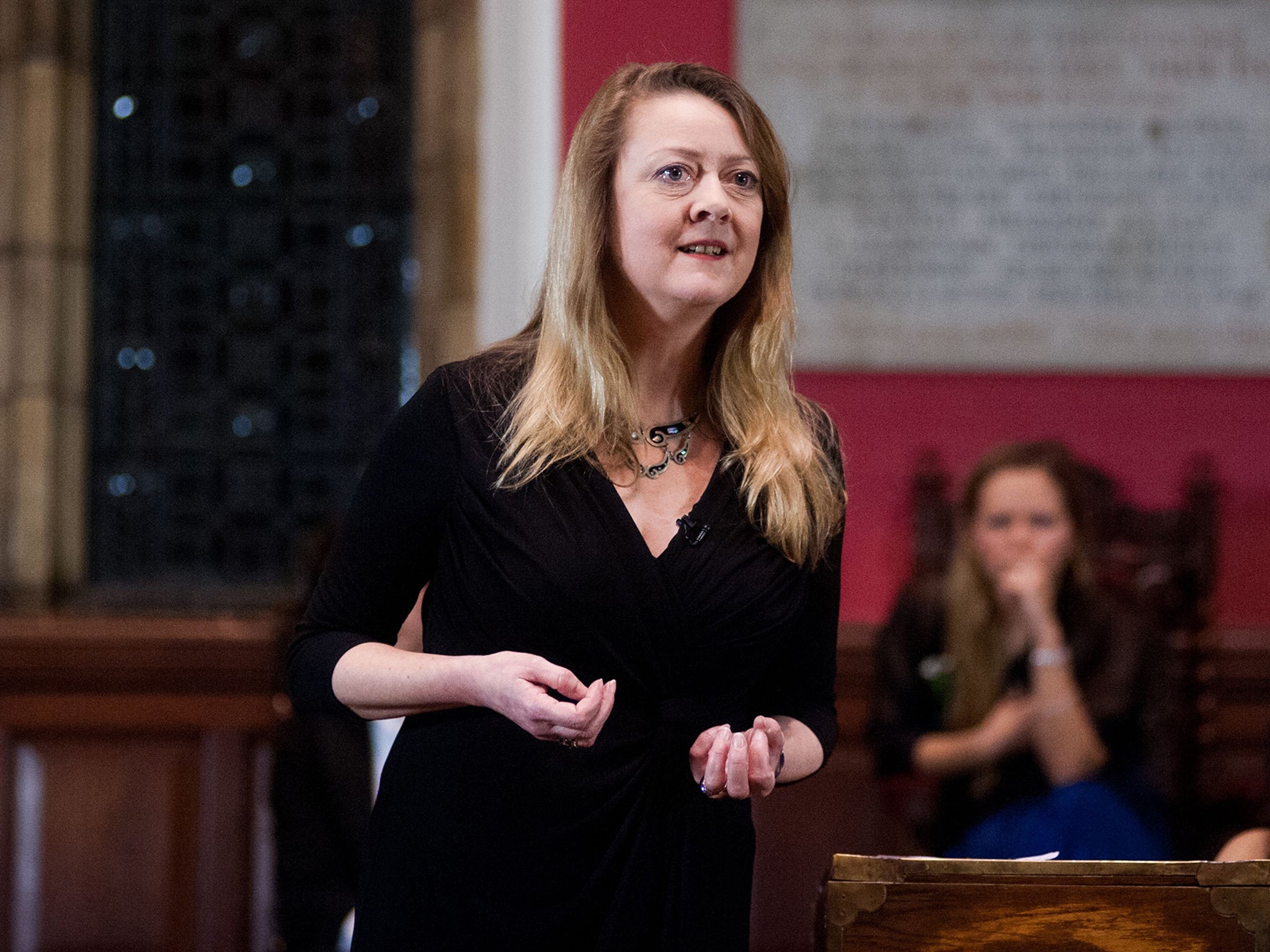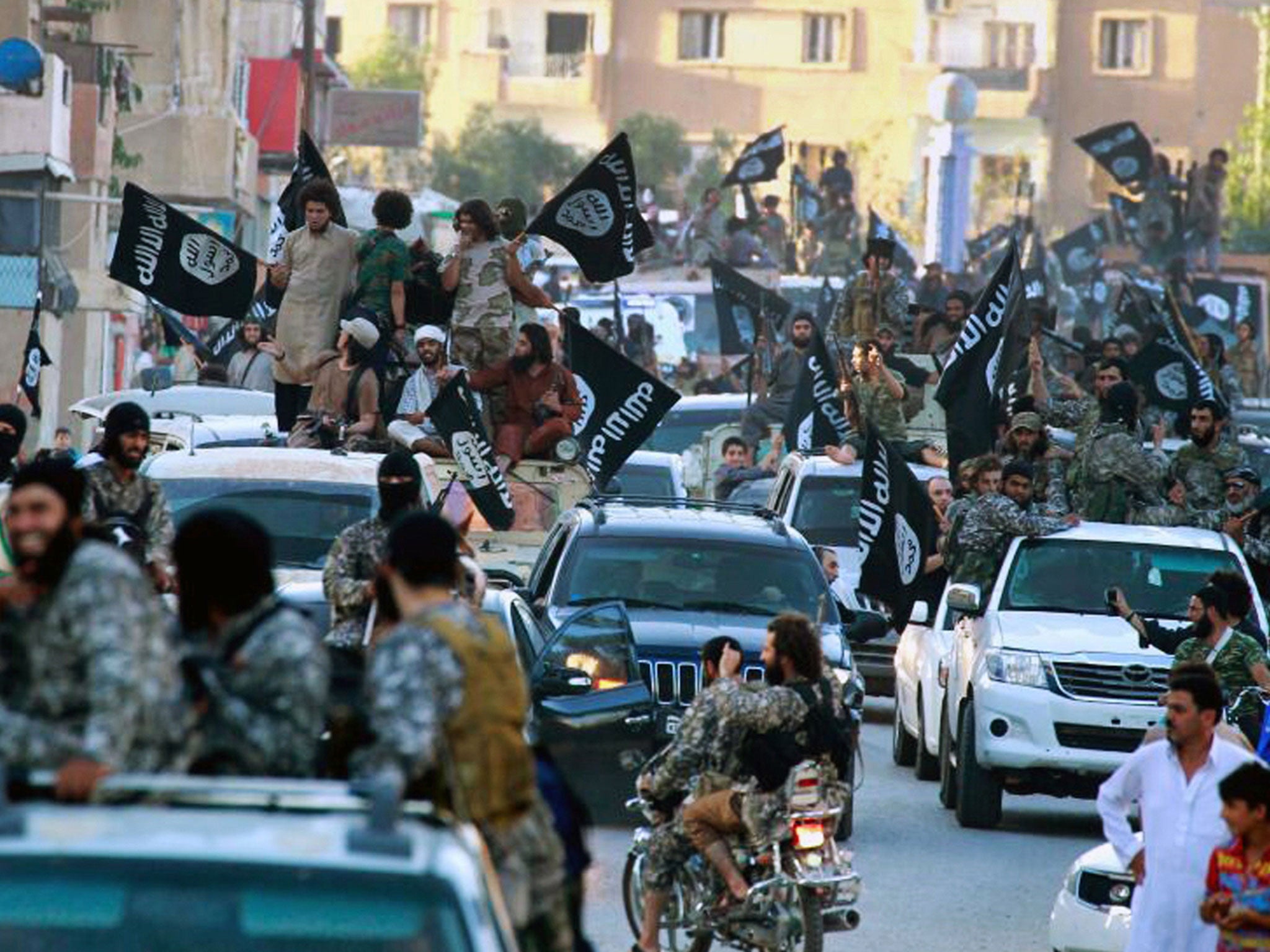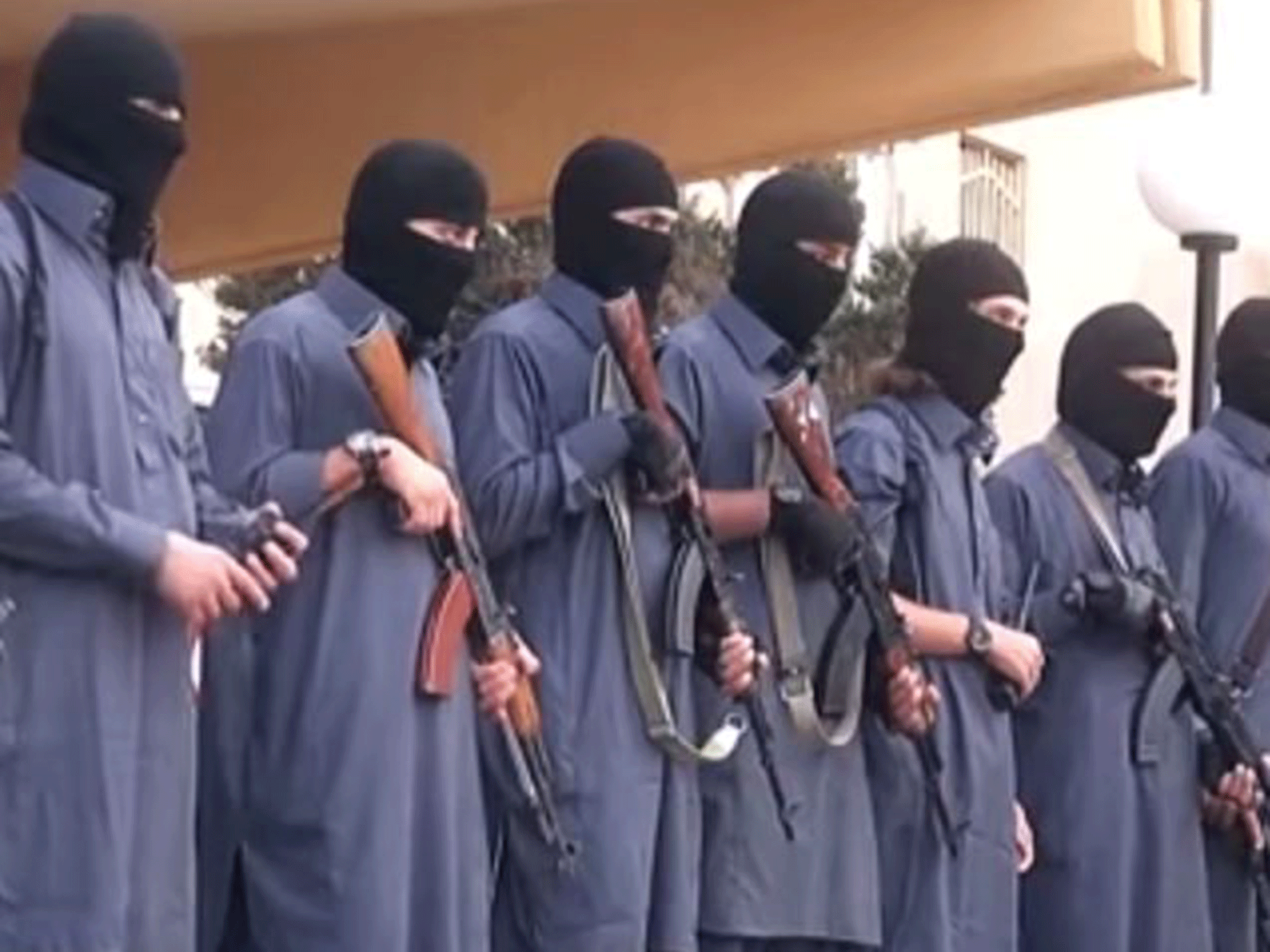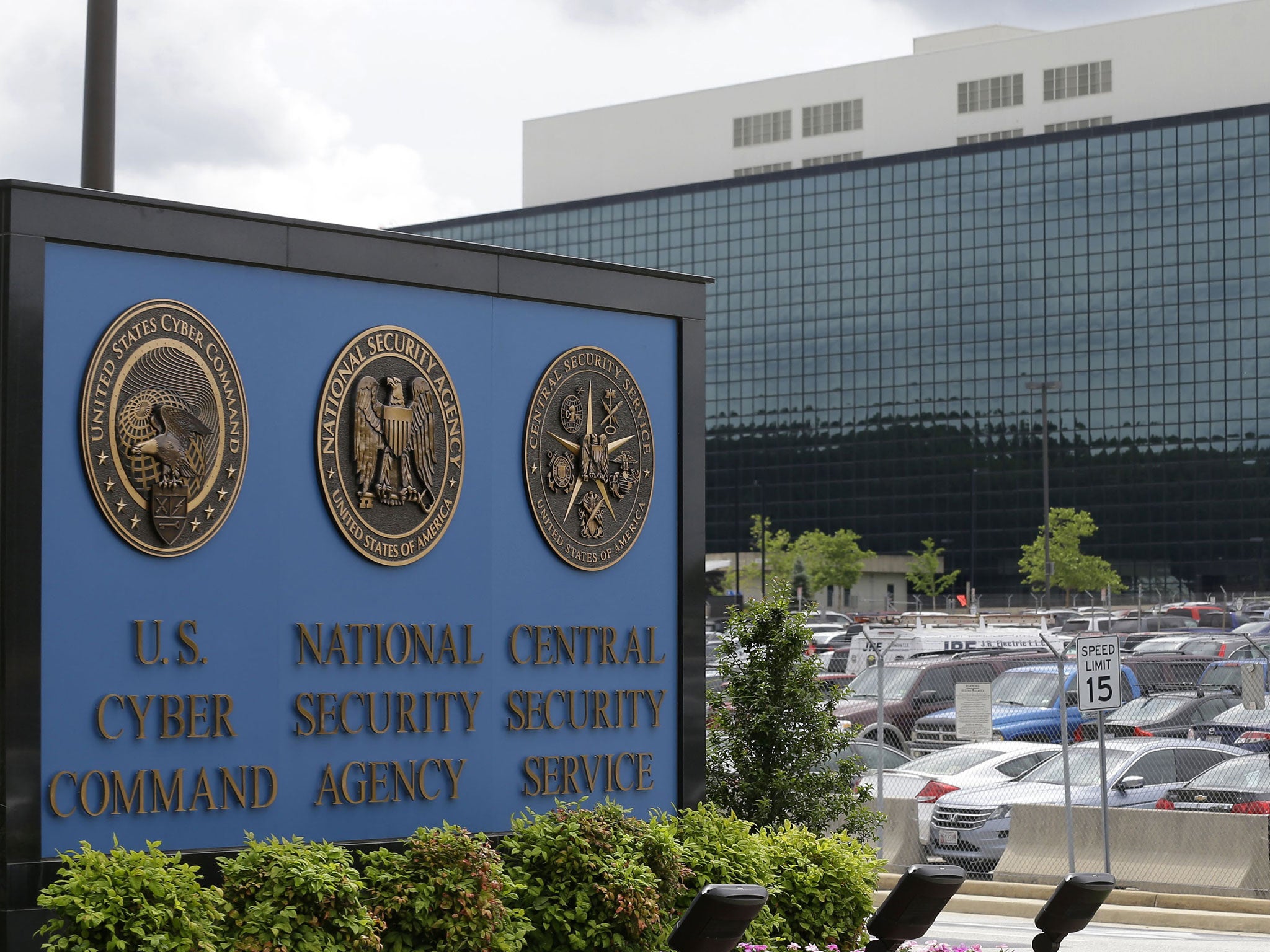Annie Machon: Former MI5 agent explains why it is so easy for Isis to move around without being noticed
It is estimated to take 18 to 20 officers to keep an eye, 24 hours a day, on any one suspect

Your support helps us to tell the story
From reproductive rights to climate change to Big Tech, The Independent is on the ground when the story is developing. Whether it's investigating the financials of Elon Musk's pro-Trump PAC or producing our latest documentary, 'The A Word', which shines a light on the American women fighting for reproductive rights, we know how important it is to parse out the facts from the messaging.
At such a critical moment in US history, we need reporters on the ground. Your donation allows us to keep sending journalists to speak to both sides of the story.
The Independent is trusted by Americans across the entire political spectrum. And unlike many other quality news outlets, we choose not to lock Americans out of our reporting and analysis with paywalls. We believe quality journalism should be available to everyone, paid for by those who can afford it.
Your support makes all the difference.One of the most depressing aspects of the appearance of a “new Jihadi John” video is that the man killing the prisoners in the video, Siddhartha Dhar, was known to UK security services before he fled to Syria and had even been arrested by British police before being let go on bail.
Dhar had also repeatedly shown up at Islamic extremist rallies in the UK and had appeared on TV advocating the terrorist cause.
This is not unusual.
The first “Jihadi John,” Mohammed Emwazi, escaped from the UK to go to Isis even though he was known to MI5 and was on the Home Office Warnings Index.
The ringleader of the Paris attacks, Abdelhamid Abaaoud, entered and left the UK before planning the attacks. And five other Islamists linked to Dhar left the UK undetected in the months prior to Dhar's execution video.
So why is the UK so bad at keeping tabs on terror suspects?
Business Insider has noted before that the job is more complicated than it sounds, even after the suspect has been identified. In France, for instance, former French intelligence counterterrorism chief Louis Caprioli estimated that it takes 18 to 20 officers to keep an eye, 24 hours a day, on any one suspect.
There are 6,000 employees at GCHQ and 4,000 at MI5. But there are up to 3,000 suspects in the UK. At the French ratio, you would need 60,000 officers to track them all. That's almost half of Britain's total number of police officers, 127,000 (PDF). It's an impossible job.
So we asked a former MI5 operative, Annie Machon, how they do it. Machon was once responsible for monitoring IRA suspects in the UK in the 1990s. She left MI5 in 1996 to blow the whistle on domestic spying and abuse of citizens' privacy rights. She is now an author, speaker and PR consultant.
Business Insider: Could you tell me very briefly what you did for MI5?
Annie Machon: Sorry my cat’s just walking all over me, James Bond never had this problem. Briefly, I worked for MI5 for six years in the early to mid-1990s. I was recruited to be a new generation of intelligence officer because they were moving into looking into terrorist targets, particularly the IRA at that point, which was a very different type of work to that which they previously did, which was counterespionage, countersubversion.
I was there for six years and I worked in three different sections. First on the countersubversion desk, then the Irish terrorist desk, and then looking at international terrorism. I was the officer in charge of Irish terrorist logistics, so the movement of personnel and arms into and out of the UK.
BI: A French security agent told the FT that to keep one person under surveillance for 24 hours a day, it’s going to take 18 to 20 agents per suspect. That was surprising to me. Is that reasonable?
AM: I would say that is conservative, that would be the sort of number to put someone under mobile surveillance. But if you’re that interested in someone, you’re likely to have other people coordinating operations, running operations to get into their offices, their cars, whatever, and you would have all the warrants in place to be intercepting communications. So, you know, the team could be bigger than that, that would just be the human mobile surveillance.
BI: Wow, OK, and is this why these Isis people are seemingly able to come and go through the ports because there are hundreds of them and we’d need thousands of officers to keep track of them all?
AM: Not particularly. I think the intelligence agencies are drowning in info at the moment and because of that they’re not specifically targeting people who might be of interest.
If you look at most of the attacks in the west that have occurred over the years, most of these people have at some point been on the radar of some of the agencies. Many of them have already been approached by the agencies who try and recruit them as agents or to warn them off saying, “We know what you are doing, stop it sonny.”
The resources are spread so thinly because they are doing this industrial-level data-mining trawl on all of us.

So roll back 25 years, god, to when I was looking at the Irish target, there was a lot going on and resources were still scarce and, therefore, you would focus on the people that you thought were an imminent threat. You had to bid for the resources and put together a strong intelligence case. You had to know what they might be about to do and why they were top of the list.
That’s actually quite a good process to go through because then you do actually focus on the people who might be an imminent threat, while keeping the others on your mind.
Because they’ve had this golden opportunity with technology and the internet, because they could and did hoover up as much info as they can, that’s actually hampering their work and damaging national security.
BI: Is it mostly people sitting at computer terminals, or is any of this done the old-fashioned way, with blokes following you from 5o yards down the road?
AM: It’s a blend. If the person is of immediate interest, then it would be blokes following someone from 50 yards down the road. The old approach used to be that you had a range of investigatory tools, which you deployed in the best way to get what you needed.
Since 9/11 particularly, with the Americans ramping up the war on terror, it is getting overrun with technological surveillance and that’s where they are drowning.

Intelligence officers used to spend a lot of time trying to piece together someone’s life using all these different tools. Now, of course, most people just offer a lot of this up on Facebook: This is who I’m in a relationship with, these are my friends, these are my political views … The intelligence services are overwhelmed with all this info coming in. Profiling people is how you keep track of them.
BI: MI5 only has about 4,000 employees right now, what other security assets are they using?
AM: There’s any number, I wouldn’t know the total number off the top of my head. The way it works is, MI6 gathers international intelligence abroad, GCHQ gathers the electronic evidence, and MI5 runs the operation. So if you’re an intelligence officer there you’re given a target, Iraq, for example. There are known targets and around those targets you determine who might be of immediate interest and you then deploy this range of resources to investigate these targets.
If you’re an MI5 intelligence officer, it’s not just the tools you have, but also coordinating with other agencies, like GCHQ. Across the UK, each individual police force has its own counterterrorism department. You’d coordinate with them if they are moving through that specific area, plus you could be in contact with customs and a whole array of different people.
BI: Is the coordination between agencies good? Or is it clumsy and lumpy and chaotic?
AM: Er, the latter, (she laughs). I’ve been out of it so long now but I doubt it has changed significantly. Everyone expects security agencies to protect the world, but they're actually competing for resources and power. And knowledge is power, so they tend to halt and hug their knowledge close to each organisation’s individual chest. Particularly between MI5 and MI6 and between MI6, MI5, and the police.

There are plenty of examples, which I wrote about in my book. When they were transferring primacy of investigations of the provisional IRA from the [London Metropolitan Police] to MI5 in the early 1990s, the Met were pretty pissed off and they did everything they could to impinge the effectiveness of what MI5 were getting up to.
BI: Is it the same when we’re talking about other countries? Services in France, Turkey, Greece for example.
AM: It’s less competitive but it’s just as difficult and fractious because people want to protect their own sources and information.
One thing I would throw in is this dragnet, industrial-scale surveillance is drowning in information. In fact, there’s another whistleblower out there, Bill Binney, a former NSA technical director. He blew the whistle a few years ago now — sort of an inspiration to Edward Snowden.
The NSA, as it was beginning to get to grips with the war on terror, obviously faced certain of conflicts like should we be doing this to our fellow Americans? It’s against the Constitution. So Bill and his team built a program, “ThinThread,” which selected those who were of legitimate interest, but the NSA junked that in favour of dragnet surveillance.
Technically it is possible to be more selective and more targeted, I think they would be a lot more effective if they went back to that premise.
Read more:
• The EU referendum could cause 'civil war' in the Conservative party
• The Saudi stock market is in free fall
• Jeremy Corbyn says he doesn't think David Cameron would use nuclear weapons
Read the original article on Business Insider UK. © 2015. Follow Business Insider UK on Twitter.
Subscribe to Independent Premium to bookmark this article
Want to bookmark your favourite articles and stories to read or reference later? Start your Independent Premium subscription today.
Join our commenting forum
Join thought-provoking conversations, follow other Independent readers and see their replies
Comments